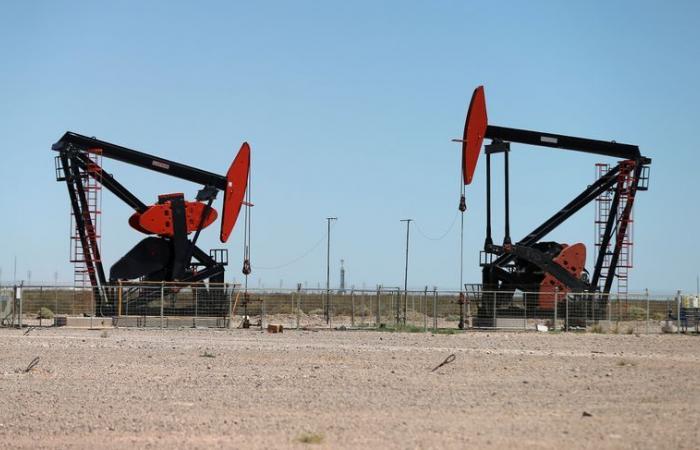Oil prices could stagnate in 2025, with China's economic weakness clouding the demand picture and plentiful global supply outweighing support from the expected postponement of a planned increase in oil production. OPEC+, according to a monthly Reuters poll on Friday.
The survey of 41 economists and analysts forecasts that the average price of Brent will be $74.53 per barrel in 2025, up from $76.61 in October.
This is the seventh consecutive downward revision to the 2025 consensus for the global benchmark, which has averaged $80 a barrel so far in 2024.
U.S. crude oil is expected to average $70.69 per barrel in 2025, lower than last month's forecast ($72.73).
Oil trader sentiment “has turned sharply negative due to concerns about the global economy, particularly the Chinese economy and demand growth, and concerns about OPEC+'s ability to align supply with demand,” said Stratas Advisors President John Paisie.
Earlier this month, OPEC cut its forecast for global oil demand growth this year and next, pointing to weakness in China, India and other regions.
Oil demand in China, the top consumer, is expected to rise slightly thanks to recent stimulus measures, but structural economic challenges and the rise of new energy vehicles could limit growth, analysts say.
Global oil demand is expected to increase by 1 million to 1.5 million barrels per day in 2025, according to the survey.
The International Energy Agency, meanwhile, predicts that global oil supply will exceed demand in 2025, even as OPEC+, which includes the Organization of the Petroleum Exporting Countries and its allies such as Russia, maintains its reductions.
“We expect OPEC+ to announce a further three-month extension of cuts until April 2025,” said Kim Fustier, head of European oil and gas research at HSBC.
“We do not rule out OPEC+ postponing production increases until later in the year, given that oil prices are around $70/bbl.”
The group, which produces around half of the world's oil, will meet on December 5 to decide on production policy for the first months of 2025.
Most respondents said continued geopolitical tensions and possible tougher Trump administration sanctions on Iran could provide only limited support for oil prices amid sluggish demand .
“Iranian exports could slow, leaving room for an increase from other producers, so the net impact would be limited,” said Ole Hansen, head of commodities strategy at Saxo Bank.






